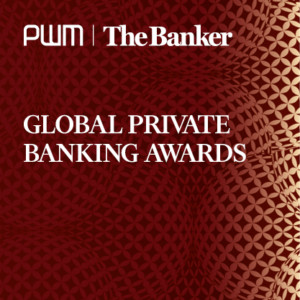Global Private Banking Awards 2019: Winners’ Profiles – National Winners (Middle East and Africa)

Best Private Bank in the Middle East;
Best private bank in Qatar;
Best Private Bank in Russia; Best Private Bank for Entrepreneurs
Credit Suisse
Credit Suisse’s distinctive trait is its ability to deliver its services through an integrated franchise, across private banking, investment and corporate banking. Founded 163 years ago by Alfred Escher, the Swiss business leader, politician and railway pioneer, the bank keeps entrepreneurial thinking as one of its core principles, and prides itself in being able to support entrepreneurs through every stage of their business cycle.
In Russia, where private wealth and corporate activities are much more intertwined than in western Europe or the US, many clients are entrepreneurs, having major stakes in Russian companies. “Our clients are looking to us beyond wealth management and we can provide them access to our other capabilities, including project finance, export finance, structured lending and investment banking,” says Robert Cielen, head of International Wealth Management Emerging Europe at Credit Suisse.
Many of the bank’s relationship managers have backgrounds in corporate and investment banking, which enables them to better understand client needs and deliver across a broad range of corporate and investment banking opportunities.
In Russia, increasing numbers of UHNW clients have their own family offices, employing seasoned investment professionals and the bank is investing in a dedicated UHNW investment delivery function for the Russian market. This includes continuing to hire investment professionals that are “true investment partners” to the most sophisticated clients and their family offices, as well as providing clients access to Credit Suisse’s Global Markets’ trading platforms and institutional-type services.
In the Middle East, the UHNW client segment provides the biggest source of wealth but entrepreneurial wealth is rising too. “Although still relatively nascent, entrepreneurship is beginning to flourish in the Middle East, as the region’s economic growth prospects diversify from traditional industries and move towards new sectors,” states Bruno Daher, head of International Wealth Management Middle East and Turkey at Credit Suisse. Moreover, as part of a drive to build a self-sustaining non-oil sector, GCC countries such as Saudi Arabia, the UAE and Qatar, are building a framework that is more supportive for start-up enterprises and allows for greater competition.
Middle Eastern investors, including Qatari nationals, are looking for global and local solutions that address both their business and personal needs. When compared to other emerging market investors, such as from Asia-Pacific, the Middle Eastern investor has less developed capital markets and local solutions in their own region. “Credit Suisse is well positioned to partner with these clients and support the region’s appetite for a unique, complex, and cross-regional offering, utilising our private bank, investment bank, and asset management franchise,” explains Mr Daher.
A further client benefit of this approach is risk diversification. Many clients hold a large portion of their assets in a single country or region, but the bank’s offering of lending against local shares allows the firm to provide clients with the required liquidity, offering diversification and yield enhancement through reinvestment in well-diversified investment solutions. “We can help our clients to diversify internationally without having to sell their assets,” he says.
The bank’s commitment to the Middle East is underscored by the growth of its onshore footprint, through the establishment of its Saudi Arabia Booking Platform, launched in 2017. In 2019, Credit Suisse was granted a provisional Saudi Arabian Monetary Authority banking license, and is currently in the process of setting up a branch. ET
Best Private Bank in Bahrain;
Best Private Bank in Egypt;
Best Private Bank in Kuwait
Ahli United Bank
Despite the recent drop in oil prices, the Gulf Cooperation Council (GCC) region is strategically placed to continue to experience growth in the coming years.
In addition, the rise of corporatisation and the adoption of global compliance standards by family-run businesses has led to an increased demand for more sophisticated wealth management capabilities. Ahli United Bank (AUB) believes itself to be uniquely positioned to cater to this growing demand within the region.
The bank prides itself on having a deep understanding of the changing needs of the GCC and Middle Eastern HNW clients. Its main focus in 2018 was to implement its strategy of creating value through segmentation and products, which led to growth in the client base and helped acquire new money.
During 2018, customer deposits increased by 9 per cent and, despite a difficult economic backdrop and negative movements across asset classes, total assets under management were largely maintained at same levels as the previous year. AUB has continued to strengthen its private banking business by providing additional human resources to enhance its teams in various locations, and at multiple levels.
The bank’s open architecture model gives clients access to both conventional and Shariah-compliant investment solutions. Recent product launches included a capital protected structured deposits vehicle, a life settlement fund, and a private equity fund focusing on the US retail sector.
Although the bank considers all client segments equally important, it has a special focus on UHNW individuals and is currently developing a platform to attract new money, specifically targeting younger investors, with the view to establishing strategic and long-lasting partnerships with clients. PG
Best Private Bank in Kenya;
Best Private Bank in Nigeria;
Best Private Bank for Customer Service in Africa
Standard Bank Wealth and Investment
The mission statement at Standard Bank Wealth and Investment is simple: to be the leading high net worth wealth business for sub-Saharan clients and those who are interested in Africa.
In light of changing client expectations, the bank has focused on transitioning from a product-led proposition to one that is insight-led, with the aim being to increase client confidence and loyalty. Its ‘Challenger’ model personalises sales messages, provides insight into unique client needs and challenges and tries to enable more informed decision-making.
In a bid to better understand its clients, Standard Bank commissioned a study to gain insight into Africa’s wealthy population. Key themes to emerging from the report include: that Africa’s wealthy accumulate and spend their wealth in unique ways, and enjoy personalised, bespoke wealth management experiences; a host of factors concern Africa’s wealthy and safeguarding their wealth is paramount; while philanthropy is viewed in the context of “giving back”.
Innovations in 2018 included its Elite model portfolio range, managed by Stanlib Multi-Manager under a discretionary fund management mandate which allows wealth managers to focus on offering holistic wealth management advice, and its first third-party retail investor hedge fund solution. Meanwhile, its limited endowment product was the first Shariah-compliant tax-efficient endowment policy in South Africa.
On the digital front, the My360 app officially launched in April 2019. The aim is to provide clients with a 360-degree view of their wealth portfolio and the wealth manager has access to what the client sees, which enables deeper client relationships. The hope is that My360 will increase advisers’ productivity and efficiency. ES
Best private bank in Lebanon:
Best private bank for Customer Service in the Middle East
Audi Private Bank
The conclusion of the legal unification of Bank Audi’s private banking units under the umbrella of a global and dedicated new business franchise, BAPB Holding, based in Cyprus, took place in 2018. According to the bank, the consolidation has created better synergies and accountability across the group, as well as more effective management and improved governance.
Moving forward, BAPB’s strategy is to continue its growth plans, strengthening its business model, risk management and control framework, and operational infrastructure.
The bank has grown the range of services and investment products offered to private banking clients. In 2018, it launched a Global Opportunities certificate, an equity-based vehicle that invests globally in equities, ETFs and options. This vehicle offers clients access “to BAPBs equity team’s best trading strategies through a pooled vehicle structure”, claims a spokesperson.
In response to client demand, BAPB introduced a new discretionary mandate investing according to sustainable and responsible investment criteria. A spokesperson for the bank says: “We have found that such an approach no longer penalises investors for caring about the environment and social progress. On the contrary, responsible investing is now in a position to meet or beat traditional approaches. This creates the attractive option for socially-motivated investors to invest their wealth profitably in a manner that is aligned with their values.”
The needs of private clients across the Middle East and north Africa region have been evolving quickly, and BAPB relies heavily on its local presence to adapt and react to these changes. “On the other hand, markets are becoming increasingly complex as the political/geopolitical aspects have been added to the equation, making predictions more difficult and the outlook more opaque,” says the spokesperson.
“This complexity has called for more frequent communication with clients, as well as more innovative investment solutions.” PG
Best private bank in Mauritius
MCB Private Banking and Wealth Management
MCB Private Banking and Wealth Management, part of the Mauritius Commercial Bank, has further consolidated its position in the country’s private banking sector, growing its presence domestically and across the region.
The private bank is currently engaged in a transformation programme aimed at reinforcing its strategic position in Mauritius and support further expansion into Africa and beyond. The programme is looking to redefine the bank’s value proposition, optimising its operating model and setting up the foundations to foster the right international business culture.
MCB’s wealth management services range from financial and succession planning, to legal and fiscal advice for protecting wealth and specialised advisory services for clients and entrepreneurs who are looking to start or grow a business.
Its investment management offering includes discretionary portfolio management, investment advisory and custodian services. The bank also provides investment management services, trading, custody and transactional services to external asset managers and financial intermediaries.
MCB claims its reputation in the local market has facilitated the task of attracting and retaining talent. “Our challenge today is that with the advent of social media recruitment, competition to recruit the best talent is no longer limited to the local market,” says deputy head François Desvaux de Marigny. The bank has appointed a people strategy partner to focus on anticipating and responding to the latest human capital needs and requirements.
“Locally, we are the sole institution to have received approval from the Bank of Mauritius to distribute bespoke structured products to high net worth clients,” he says. “Beyond, we remain focused on international client acquisition, in line with a key growth pillar of the bank which is to expand private banking into Africa. This has resulted in a notable growth in our foreign client base.” PG
Best Private Bank in Oman
bank muscat SAOG
Private wealth has been rapidly increasing in the Gulf Cooperation Council countries, including Oman. During the past decade, Bank Muscat Private Banking has built up $1.34bn in client assets.
“Besides maintaining a constant focus to reach out to new customers and garner new AuM, we have also been able to leverage the bank’s internal network quite effectively in growing our book and fee income,” says Abdulnasir Al Raisi, deputy general manager, premier banking at Bank Muscat.
“Cross-selling, which has been the key focus for the bank’s different divisions, has helped private banking immensely in being able to offer its platform and services to high net worth individuals in other divisions of the bank.”
Mr Al Raisi describes this as a “win-win solution”, not only for private banking, but also for the other divisions within Bank Muscat. Clients who previously were exposed only to banking solutions can now avail themselves of the private bank’s investment platform.
An emphasis on customer service is driven from the top management, says Mr Al Raisi, and the bank has upgraded its internal customer service system and conducts regular feedback sessions with clients to ensure any problem areas are improved.
In the year ahead, Bank Muscat plans to increase its client base, AuM and fee income as competition from local and international banks increases.
“Our strong platform already gives us an edge in terms of bringing the best international investments to our clients across all asset classes. The team is always looking for different investment opportunities for its clients besides the traditional assets of equity and fixed income like real estate and private equity,” says Mr Al Raisi. HM
Best Private Bank in South Africa
Investec
One of the main reasons wealth is eroded over the generations is the absence of a wealth plan for family money, claims Henry Blumenthal, head of Investec Wealth & Investment South Africa. For this reason, the bank “works hard” at developing relationships with families and ensuring its offerings bring together family banking and wealth management needs “across the
generations”.
A survey of Investec’s high net worth clients revealed that only 21 per cent felt ready to transfer their wealth to the next generation, while just 11 per cent believed the next generation was ready to handle the transfer.
To address this, Investec includes younger people early on in conversations about financial markets and family money. Because such clients prefer to engage digitally, Investec’s My Investments digital platform gives them access to the bank’s suite of products at a much younger age and with lower investment minimums.
Investec’s digital approach is not restricted to the younger generation. It has a “big five” of digital projects, which include cybersecurity measures, a blockchain-based identity system, smart technology (such as in-app messaging on the Investec app that provides secure access to Investec Online) and international payments.
The bedrock of Investec’s offering in South Africa is One Place, which offers access to investments, both globally and locally, through an app.
“Increasingly, wealthy South African families are becoming global citizens who wish to operate, bank and invest globally but continue to live in South Africa,” says Mr Blumenthal. “We view technology as a key enabler that supports the relationship between clients and their private banker and investment manager. We believe the role of technology is to enhance, not to replace, the human experience.” HM
Best private bank in turkey
Garanti BBVA
Client service and communication are particularly important at Turkey’s Garanti BBVA Private Banking.
“In a year that was challenging for both our country and the global markets, we focused on our customer-centric strategy that is the key of our sustainable success,” says private banking director Sinem Edige. “We interacted with clients more often than usual to understand correctly their constantly evolving needs and expectations, helping them make the right financial decisions and buy the most suitable investment products regarding to their risk profiles.”
Turkish clients have had to contend with economic volatility, a depreciation in the lira and the country is facing several geopolitical challenges involving both regional and international powers.
In this environment, the bank hopes to provide clients with additional insights on the markets and the performance of its products. Relationship managers are given client visit targets, which are closely supervised by headquarters.
Garanti believes both digital and physical interaction are important, but Mr Edige reports that the demographic profile of Turkish private banking clients means they tend to prefer face-to-face meetings rather than an online approach. “But we believe digital interaction will gain acceleration in wealth management with the upcoming second generation,” he says.
Rather than new services, Mr Edige says clients require different investment products. “With the low interest rate environment, they need more sophisticated vehicles to enhance their returns. We target those demands by designing products such as inflation-indexed bonds, structured bonds and deposits, and investment funds.” ES
Best private bank in the UAE;
Best Private Bank for Islamic Services
Abu Dhabi Islamic Bank
The clients of ADIB are seeking an Islamic bank that can cater to their Shariah-compliant needs, but which also provides the high-quality services expected from a dynamic, modern bank, says Mohammed Azab, head of private banking at the Abu Dhabi-based bank.
“This is our core proposition. However, ADIB’s experience shows that Islamic private banking can gain wider appeal beyond a purely Muslim customer base and the fastest growing segment of our customers are now expatriates.”
This has redefined the potential size of the market available to the bank. Such investors, he says, “want to bank with an organisation that promotes ethical investment products and services, and which will become a long-term partner to support their wealth management objectives”.
ADIB describes the United Arab Emirates as “one large growth opportunity” and claims the bank’s products always have a “local flavour”. Trade and logistics, finance and tourism are the key pillars of the UAE economy, and the government has invested heavily in positioning itself as world-class hub for these sectors.
Internationally, the bank is present in six countries, with Egypt and Saudi Arabia the most promising, says Mr Azab. ADIB is targeting the Islamic Trade Corridor, which connects the Islamic finance market of the UK and Europe, via the Middle East to the fast-growing Islamic-dominated economies of South East Asia.
It is also focused on developing digital services that are accessible and easy to use. “This transcends generations and is not just about our younger customers versus our more established clients,” explains Mr Azab. “That is why we are working on redefining the private banking experience – bringing our clients a careful blend of digital services and wealth management advisory in a manner that suits their lifestyle.” HM



